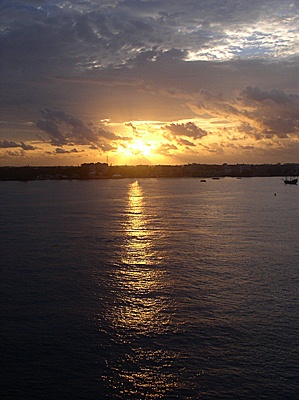All Nonfiction
- Bullying
- Books
- Academic
- Author Interviews
- Celebrity interviews
- College Articles
- College Essays
- Educator of the Year
- Heroes
- Interviews
- Memoir
- Personal Experience
- Sports
- Travel & Culture
All Opinions
- Bullying
- Current Events / Politics
- Discrimination
- Drugs / Alcohol / Smoking
- Entertainment / Celebrities
- Environment
- Love / Relationships
- Movies / Music / TV
- Pop Culture / Trends
- School / College
- Social Issues / Civics
- Spirituality / Religion
- Sports / Hobbies
All Hot Topics
- Bullying
- Community Service
- Environment
- Health
- Letters to the Editor
- Pride & Prejudice
- What Matters
- Back
Summer Guide
- Program Links
- Program Reviews
- Back
College Guide
- College Links
- College Reviews
- College Essays
- College Articles
- Back
Columbus' Explorations: The Accidental Villen
“In 1492, Columbus sailed the ocean blue…"(http://www.teachingheart.net/columbus.htm) this is the exceedingly famous opening line to a nursery rhyme dedicated to explaining the adventures of Christopher Columbus to grade school children. The remainder of the rather long rhyme explains in simple terms that Columbus set out for India, looking to expand trade routes, but instead accidently landed in the Bahamas, and essentially discovered a new world. Despite being very much for children and a base teaching aide, the rhyme does an excellent job of pointing one of the more overlooked aspects of Columbus’ journey and discovery: that is was completely unplanned, and only occurred due to a navigational mistake. This fact poses the question then; whether Columbus truly deserves the recognition and admiration for discovering the new world, or should be vilified and held in contempt due to his vast exploitation of the Native Americans found on this ‘new world,’ as well as for the reckless destruction of nature. Due to the nature of Columbus’ discovery and the manner in which he handled the achievement, one can venture to believe that the adventurer should indeed be denigrated, and be held in much less esteem.
As mentioned, Columbus set out in 1492 for the Indies, having just acquired the permission of King Ferdinand and Queen Isabella of Spain. After much insisting, the royal couple granted Columbus three ships, the Nina, the Pinta, and the Santa Maria. Columbus and his fleet sailed for 31 days, before seemingly reaching their destination. It was gradually realized however that the explorer was mistaken, and had actually landed on the coast of the Bahamas. (America Past and Present 18) These facts form the general makeup of Columbus’ journey, and are fairly well known and celebrated for opening up an entire new continent. What tends to be overlooked on the other hand, is that when he arrived on the island, Columbus used a doctrine entitled the ‘Doctrine of Discovery,’ which allowed him to legally take possession of the new land without being challenged, and claim it for King Ferdinand and Isabella. This act completely disregarded the Native Americans who already inhabited the land prior to Columbus arriving, and who were completely stripped of their homeland by this foreigner who landed on their turf accidentally (http://ili.nativeweb.org/sdrm_art.html.) In addition to this, in search of wealth and possessions, Columbus began exploring the land, plundering for himself and his crew what he desired. In the process the explorer murdered and enslaved an enormous amount of the Native American population, statistics saying that the figure could be upwards of 4 million indigenous people killed within the first four years of Columbus’ arrival to the Bahamas (http://www.americanindiansource.com/columbusday.html.) The staggering amount of innocent and helpless Indians that were killed or enslaved for no better reason than to prove the Spanish fleet possessed macho power is horrific, and given this it becomes hard to see how such a person who commanded this be done is hailed as a great adventurer and hero. In addition to this, the fact that Columbus’ discovery had been a navigational mistake makes one wonder if there truly was any benefit. The explorer, without knowing that he had uncovered a new continent, immediately went in and took the land and spread general debauchery of everything. Was this worth it? Columbus’ accidental discovery would have been made eventually by another explorer if he hadn’t landed in the Bahamas, and there is good reason to believe that the discovery would have been made regardless. If that was the case, then had Columbus not stumbled upon the new world, the complete zoning and exploitation of the land and its people may not have occurred. There is no way to know whether every explorer would have done exactly as Columbus had, but one must weigh whether this was a chance the world would have been better off with.
The discovery of America was indeed necessary to the world we know today, but the methods in which it was obtained are ghastly and disgusting. Christopher Columbus deserves minor credibility for happening upon this new continent, but on the whole the explorer deserves to be condemned for how he treated the Native Americans and the land on the whole. With this information, the closing lines of the nursery rhyme seem more sickening than anything, as they sweetly hail of Columbus, “The first American? No, not quite. But Columbus was brave and he was bright,” (http://www.teachingheart.net/columbus.htm.) blinding our young children to the true nature of this admired explorer.

Similar Articles
JOIN THE DISCUSSION
This article has 1 comment.
